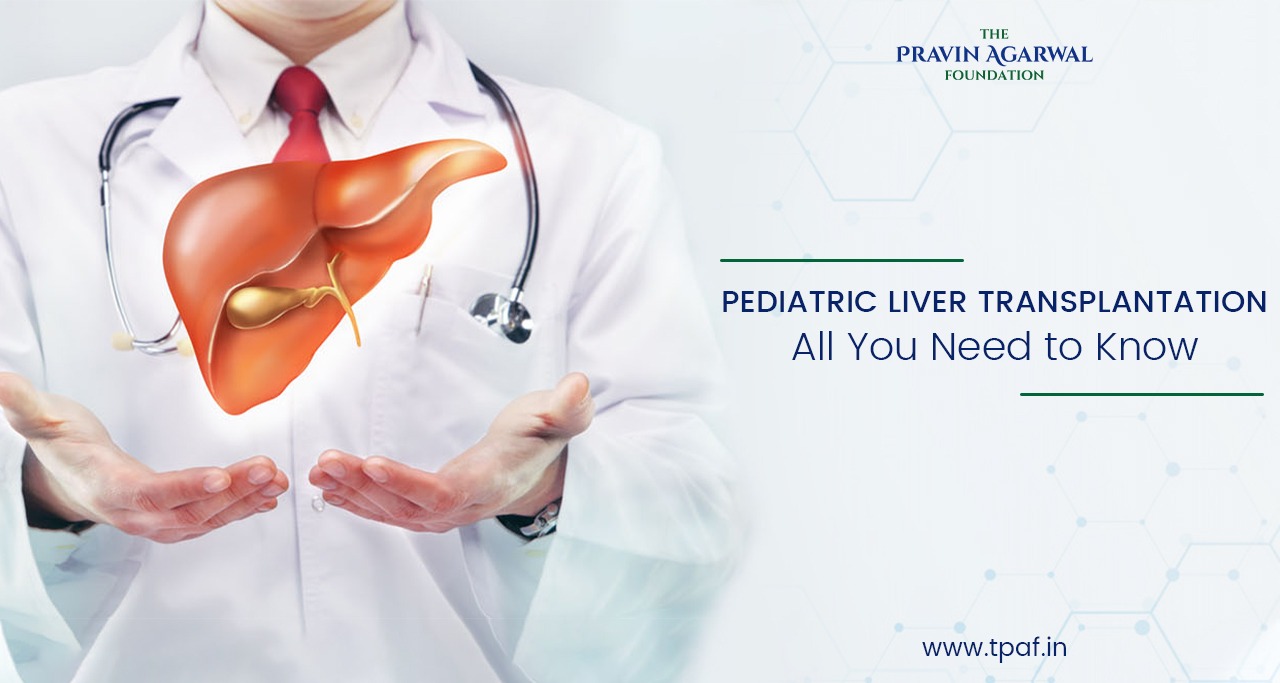Latest Update
Blogs

December 31,2019
/ adminPediatric Liver Transplantation: All You Need to Know
As a parent, seeing the child suffer from severe issues like liver anomalies can be a traumatizing experience. However, there is good news for them. When a child is suffering from end-stage liver disease – child liver transplant offers them an opportunity to enjoy a long, healthy life.
Before going into its screening process, symptoms, risk factors, follow-up care, and outcomes, let us first understand what liver transplant in children means.
What is Pediatric Liver Transplant Surgery?
A liver transplant is an invasive surgical procedure that includes the removal of a section from the liver or an entire liver that no longer functions appropriately and replaces it with a healthy liver. The liver is the only organ in a human body that can regenerate within weeks. The liver can be transplanted either from a living or deceased donor.
Why is a Liver Transplant Recommended?
Liver transplant usually recommended to a child with acute or chronic liver disease. When medications and routine surgeries have not helped a child, in such a case, a doctor suggests liver transplant. Liver transplant is a last-resort measure for chronic and acute liver diseases. In such cases, if the child doesn’t undergo liver transplant surgery, then the likelihood of survival rate tends to go down.
Besides this, a child who is suffering from the following conditions needs a liver transplant
• Biliary Atresia
• Autoimmune hepatitis
• Viral hepatitis
• Primary sclerosing cholangitis
• Acute liver failure
• Metabolic Disorders
• Wilson’s disease
• Alpha-1 antitrypsin deficiency
• Hemochromatosis
Evaluation Process for a Transplant Surgery
The assessment period for a pediatric liver transplant can be nerve-racking. First, in a transplant center, the healthcare team will ensure that a child is fit enough to have surgery and take the medications required after it. A doctor may perform the following tests.
• Blood tests – This test is usually performed to find out the blood type of a child.
• Imaging tests – In these tests, a CT scan or abdominal ultrasound examination determines if a child needs a liver transplant or not.
• Biopsy- The doctor might perform a liver biopsy. In it, he/she removes a tiny piece of tissue from the liver to examine under a microscope.
What happens before, during, and After the Liver Transplant Surgery for a Child?
Once a liver is available for a child, you will get a call from the hospital. This call can occur at any time. Therefore, you and your child need to be mentally ready for it. The hospital carries out some final blood tests and other tests to be sure the liver is a perfect match. Then, a child will go into the surgery.
A liver transplant surgery may take several hours. It depends on your child’s case. Besides, the procedure for liver transplant may vary. It depends on a child’s condition and the provider’s practice.
Once the transplant surgery gets over, the transplant team will send a child to the ICU to observe him/her carefully. Once a child is stable, they sent him/her to the specific hospital unit where they care for other liver transplant patients. Here, they give information to parents about how they should care for a child, including medications, physical activity, follow-up, diet plans, and other important information.
Follow-up Care
Once a child is discharged, he/she will need proper follow-up care during the recovery, so his/her new liver stay healthy and work properly. Remember, living with a liver transplant is a lifelong process.
Therefore, a child needs to take anti-rejection medicines so that the immune system will not attack the new liver. A doctor may prescribe some medications to prevent side effects of the anti-rejection medicines.
Ensure you, and your child remains in close contact with the transplant team. Parents should make sure that a child follows a healthy diet plan.
Possible Complications Linked With Liver Transplant
When it comes to organ transplants, there are always risks of complications. The most common complications associated with liver transplant are rejection and infection.
Infection
To reduce your child’s risk of infection while in the hospital,
• Make sure all family members follow strict hand-washing procedures.
• Visitors should be limited.
• Your child should wear a mask while leaving his or her room.
Rejection
The body’s tendency to reject the new organ is a lifelong concern. Mostly, every transplant patient experiences episodes of rejection. The transplant team will decide which medication is best for a child, and a child needs to take this medicine precisely as prescribed by them.
End Thoughts
In summary, if parents want their children’s livers to remain in a tip-top condition, then both of them must stay in touch with a transplant team. They should learn about anti-rejection medications, including what they do, the signs of organ rejection, and everything else related to a pediatric liver transplant. It will help them to make their children independent enough when they grow up.
Always remember, every child is unique, and so is his/ her liver transplant surgery. However, results are increasingly improving as doctors and scientists learn about how the body deals with transplanted organs. They are continuously trying to find new ways to improve pediatric liver transplant surgery.
 Donate
now
Donate
now



Related Posts
Aayush Jadav- A Remarkable Journey of Hope
moreKaivalya Mayane- A Remarkable Journey of Hope
moreVendant Joshi- A Remarkable Recovery
more